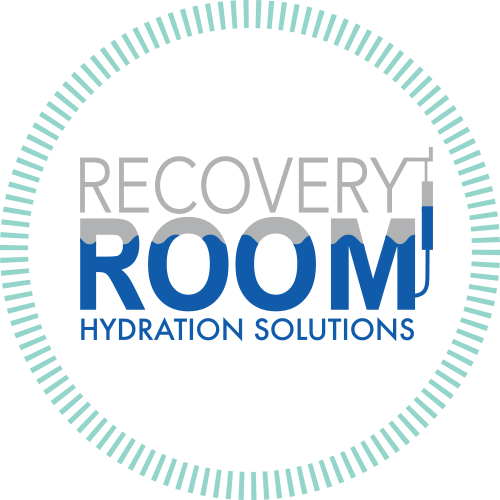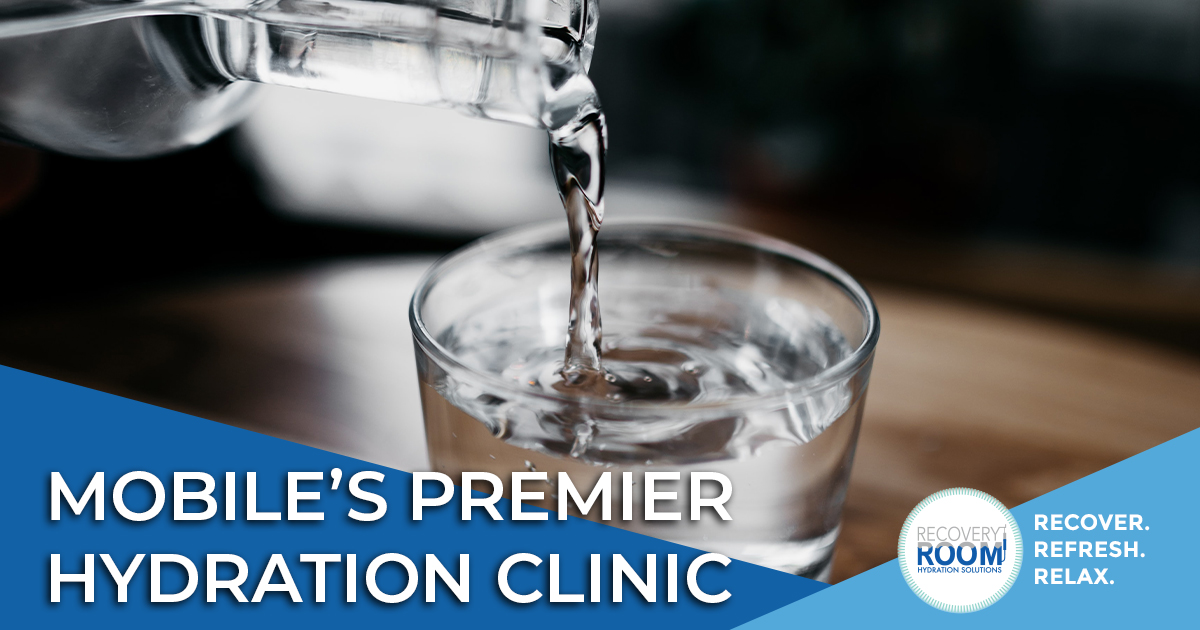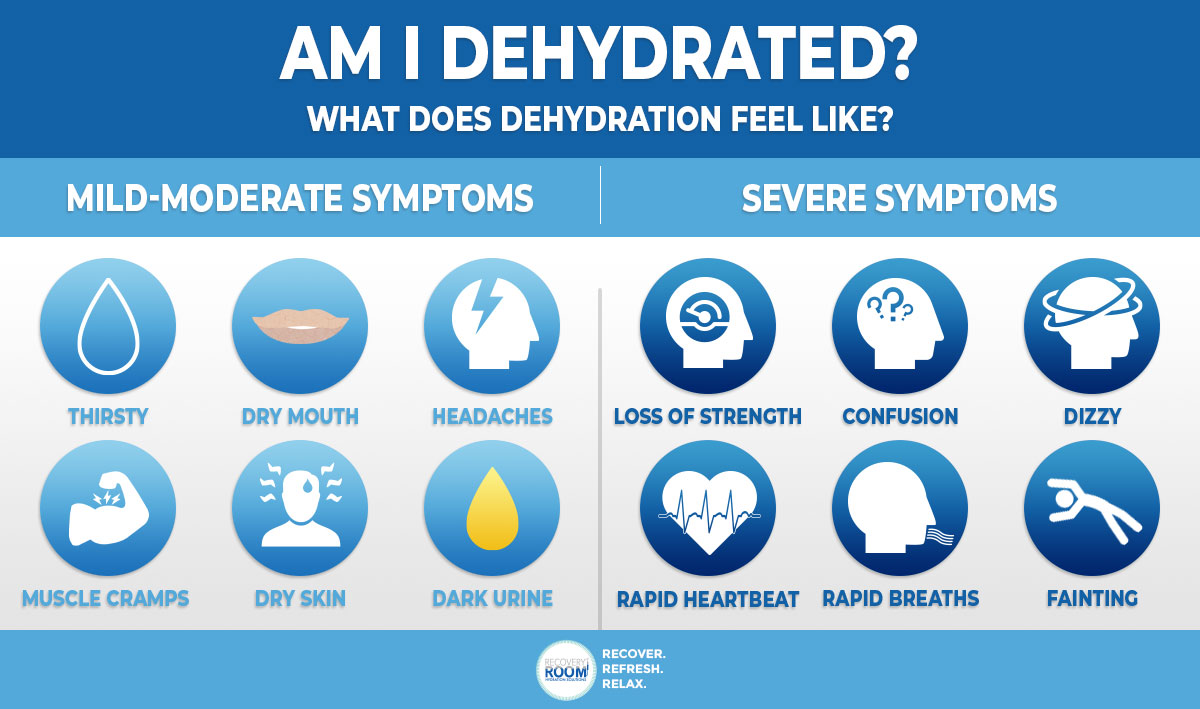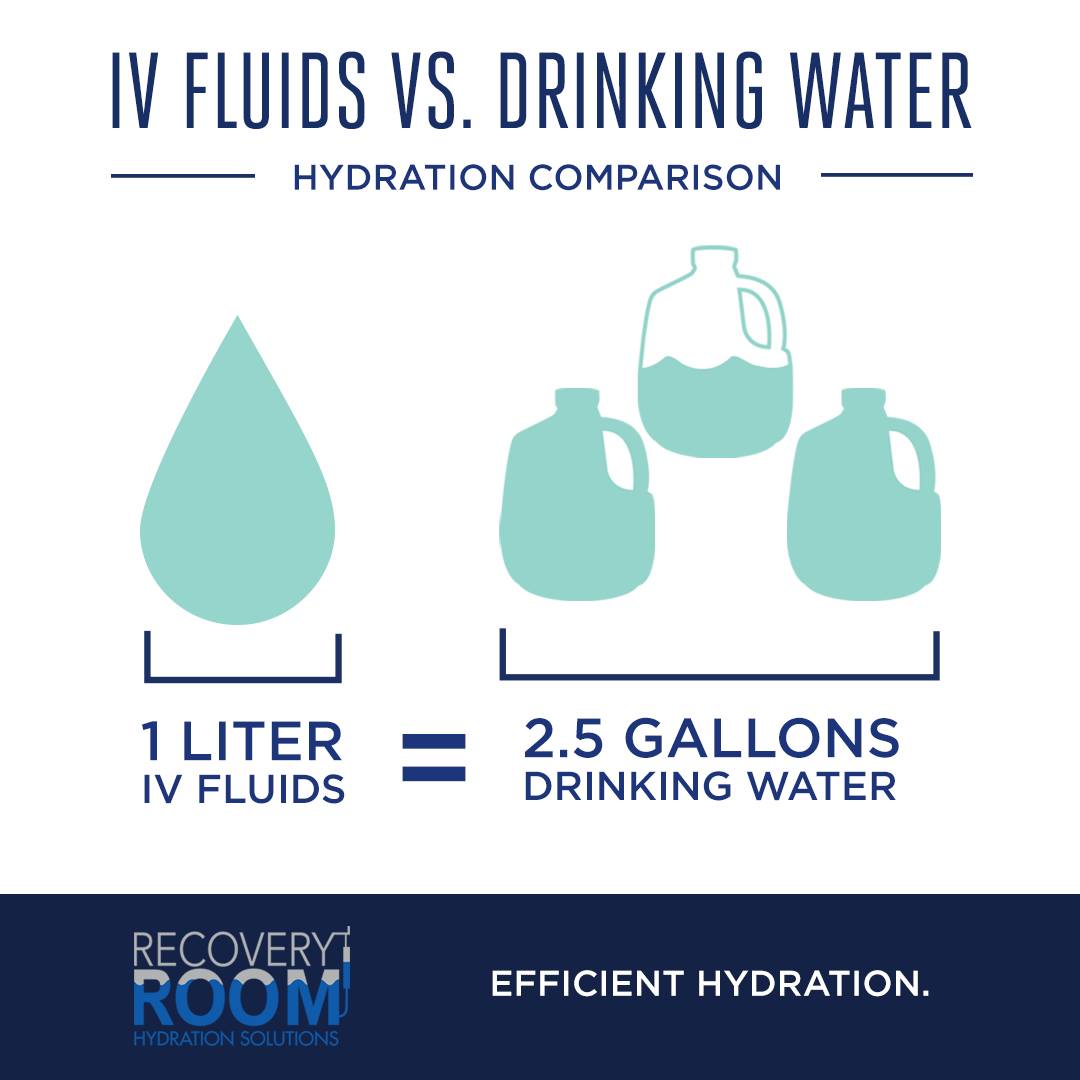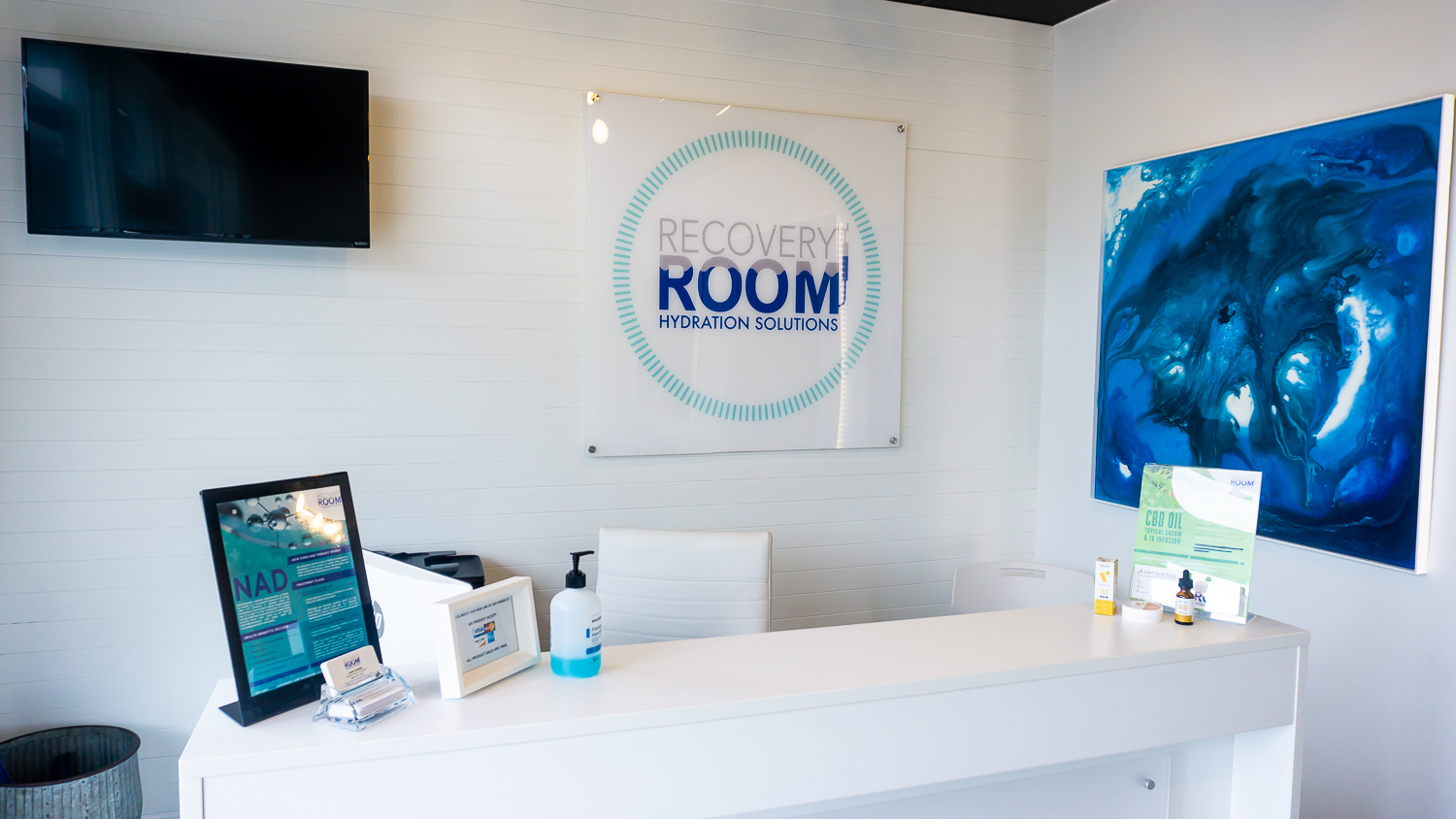Defending Against Dehydration
Roughly in a year, over half a million (500,000) people end up in the hospital for dehydration. Although dehydration is typically not a life-threatening condition, it can still wreak havoc on your body. Cause you to feel sluggish, tired, thirsty, dizzy, and even lightheaded. While simply drinking water or a sports drink can help you maintain a healthy electrolyte-to-water balance, sometimes someone suffering from dehydration will need more fluid than they can take in orally.
What is dehydration?
Dehydration occurs when your body loses more fluids than you take in. Depending on your water-to-electrolyte balance, you can experience one of three types of dehydration. Hypertonic dehydration occurs when proportionally more water than electrolytes is lost, in other words, your body needs more water to maintain proper hydration. Hypotonic dehydration occurs when the proportion of electrolytes lost is greater than the proportion of water lost, in other words, you need more electrolytes to maintain proper hydration. Isotonic dehydration results from proportionate loss of water and electrolytes, meaning your body needs both electrolytes and water to maintain proper hydration.
What can cause dehydration?
As stated above, there are different types of dehydration. The cause of each form of dehydration ultimately comes down to your water to electrolyte balance. Common causes for hypertonic dehydration are inadequate water intake, sweating, and excessive urination. Hypotonic dehydration occurs with excessive vomiting, diarrhea, kidney failure, and hyperglycemia. Isotonic dehydration can occur because of excessive vomiting, diarrhea, burns, excessive sweating, hyperglycemia, and kidney diseases.
What does dehydration feel like?
Dehydration can feel different to everyone depending on the severity of the condition.
Mild to moderate dehydration can make you feel:
• Thirsty
• your mouth feeling dry or sticky
• less frequent urination
• dark-colored urine
• headaches
• muscle cramps
• dry, cool skin
Severe dehydration can make you feel:
• sunken eyes
• lethargic
• loss of strength
• confusion
• irritability
• dizzy
• fatigue
• rapid heartbeat
• rapid breathing
• extremely dark-colored urine
• lack of need to urinate
• extremely dry and irritated skin
• elevated body temperature
• fainting
What to do if you are dehydrated?
If you are feeling dehydrated, it is advised that you drink more fluids. Sports drinks and water are a great choice if you are mildly dehydrated. If you still feel the effects of dehydration after taking in more fluids, you may need to seek treatment. Intravenous (IV) fluids are a simple mix of electrolytes and water that are delivered to your body through injection into the bloodstream. This allows the fluids to circulate through your body quickly and also provides your body with more fluids than you can intake orally. Hydration clinics like Recovery Room, allow patients to receive treatment for dehydration without having to wait in the hospitals or doctor offices.
About
Recovery Room
Recovery Room only employs medical professionals to ensure you get the best possible care. Our IV clinic is designed to help you get in and out quickly without the stress of visiting the emergency room to get an IV. We take pride in our work and our stress-free boutique. If you want to learn more about how our hydration therapy can help you, call one of our professionals today at 888-597-3747. You can also message us on Facebook or Instagram. Walk-ins are welcome, but if you would like to book an appointment, just click the button below to get started.
Want more information about dehydration?
Check out the links below to learn more about what dehydration is, how it can affect you, and what you can do to treat your condition.
https://www.nhsinform.scot/illnesses-and-conditions/nutritional/dehydration
https://academic.oup.com/nutritionreviews/article/73/suppl_2/97/1930742
https://www.sciencedirect.com/science/article/abs/pii/S1047279707003080
https://www.healthline.com/nutrition/electrolytes
https://www.webmd.com/a-to-z-guides/dehydration-adults
